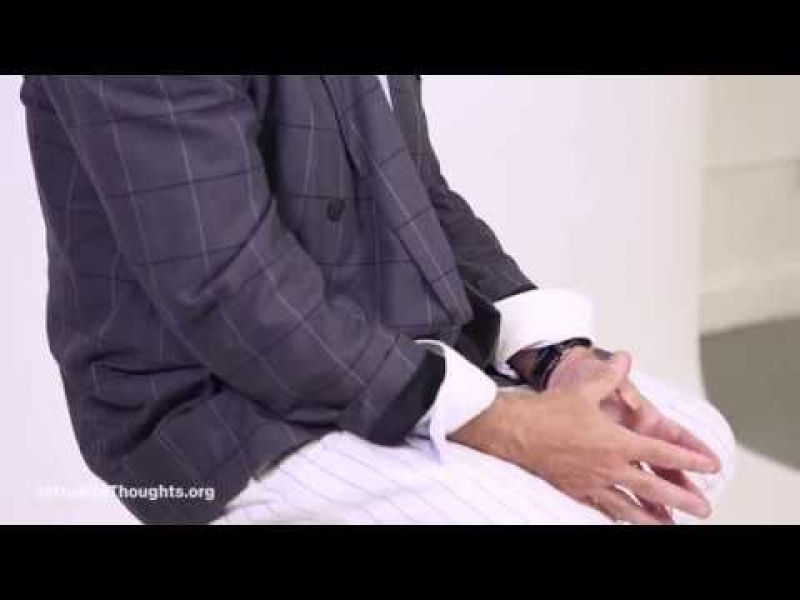Superpowers
Talking accurately about OCD may have a bigger impact than most people think.
Escrito por Rob

01 Since Rob was a child, he has obsessed over the morality of his actions.
02 Culture and society further perpetuated his obsessions.
03 Instead of fighting his OCD, he has learned to speak up and accept it.
When I was around ten years old, I experienced a series of strep infections and subsequent rounds of antibiotics as treatment.
After dealing with a series of related digestive issues and multiple procedures, my condition reached the point that I was hospitalized, and put into the ICU with a dangerously high fever and severe infection. This hospitalization led to the eventual removal of my adenoids and tonsils, and while the strep infections stopped, my OCD symptoms intensified shortly thereafter.
For several years, I tried to hide my OCD symptoms from others, and fervently believed I was being tested by God. Mostly, I believed this test was a result of my cumulative sins, but sometimes I thought that perhaps I was being tested for an eventual triumph. I thought that perhaps I had been given some sort of superpower, but could only learn how to harness it by rigidly pursuing moral perfection and atonement. I would learn to harness my OCD and become a person of value.
When I think back to my childhood, it was not completely irrational to embrace this type of mythology. Simplistic stories where the protagonist overcomes adversity and is rewarded with the “happily ever after” are well represented in churches, schools, and media. There are a lot of popular cultural connections that perpetuate the mythology surrounding OCD and mental illness.

What is Religious OCD?
Dr. Phillipson defines and discusses Religious OCD, also known as Scrupulosity.
This topic has been written about widely. Fletcher Wortmann, for example, wrote an article entitled “Super OCD: The Problem With Mental Health Tropes” about this very topic. In the article, Wortmann mentions the television show character Monk. For those unfamiliar, Monk has OCD, but is generally depicted in the series as a bit of a quirky germaphobe who also happens to be a savant when it comes to solving crimes — a stereotypical OCD trope.
I am not particularly offended by these mischaracterizations, but I cannot deny the impact on the larger non-OCD population. In fact, Wortmann’s article reminded me that someone close to me once remarked that I would make a good detective. Coincidentally, we had just been discussing the impact OCD had on my life. At the time, this relatively benign yet uninformed comment caught me off guard. I had never been a Monk watcher, so the reference was completely lost on me at the time.
Needless to say, I am not a detective, and have no intention of becoming one. Instead, in my professional life, I work as a teacher supporting students with disabilities. I’ve worked in this field for over ten years, and at times, I do see the harm that this type of reductionist thinking causes, whether it be working with parents, colleagues, or community members.
From my lived experience, I have never found OCD to be quirky, and certainly do not view it as a harnessable superpower. In fact, I am unaware of any evolutionary advantage OCD might offer. OCD certainly does not need to be limiting, but I’m not sure a person with OCD should be advised to battle or fight their OCD.
All too often, I see this advice provided to students struggling with a variety of disabilities, not just OCD. Although I am working on these things myself, my experience with OCD suggests that I am better off when I am able to accept, embrace, and even befriend my OCD.
Ultimately, this is why I have recently been compelled to share my story. For a long time, I advocated for inclusion, but really settled for exclusion. I did not really see the merits in sharing my own story with OCD and viewed it as something that was best kept close to the vest, since everyone is dealing with something.
Now, however, I realize that perhaps the superpower might be found in the discomfort and vulnerability it requires to openly share my story and being a support to those reluctant to share their own.
Apoya nuestro trabajo
Nuestra misión es cambiar la manera en que el mundo percibe la salud mental.



















